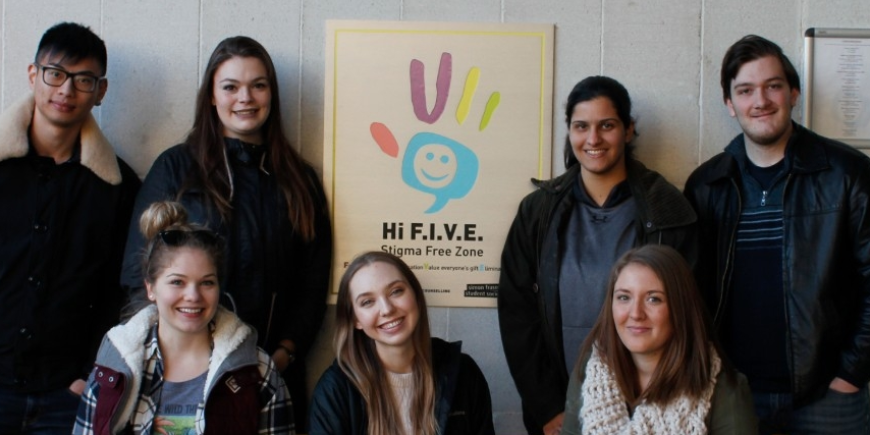
As human beings, we will all have a time in our life when our mental health is not at its best. Our mental health can be affected by a life event or brain chemistry that causes our brain to be strained and suffer from mental illness. According to Erika Horwitz, the Associate Director of Health and Counseling here at SFU, 1 in 5 Canadians struggle with mental health. The most common forms seen in university students are stress, anxiety, and depression. Although quite common, many people who do have a mental illness internalize this problem and do not ask for help because of the negative connotations associated with a mental illness. On campus, Health and Counseling Services is introducing the Hi F.I.V.E. campaign to eliminate the stigma and prejudice around mental health by: Friendship, Invite conversation, Value everyone’s gift, and Eliminate stigma. If you are interested in making a commitment to provide a safe place for those who struggle and/or experience mental health distress, visit the Hi F.I.V.E. website to make a pledge.
With midterms just around the corner, this blog post intends to provide you with a few tips on how to manage common mental illnesses amongst university students, like stress, anxiety, and depression. Horowitz says that your perception of a situation is what triggers you to feel stressed, anxious, or depressed. You can manage these feelings by questioning your perception and looking at the situation differently. For example if you are stressed about having to meet multiple deadlines, you can re-evaluate the situation and address all your tasks one step at a time to make you feel less overwhelmed. However, sometimes when you are caught in the moment, this is difficult to do, so here are some reminders about overall health and wellness.
-
Get enough sleep – give your body enough time to recharge and work at its best. Lack of sleep can cause you to be too tired or cranky to focus
-
Decrease your caffeine intake – caffeine increases anxiety levels and irritability. Dependence on caffeine can also affect your sleeping habits
-
Eat healthy – it is so easy to go to a vending machine and buy chips or candy while studying, but these contain a lot of fat, salt, and sugar. Try to eat fruits and vegetables, which are rich in vitamins in minerals that your brain needs
-
Be active – working out or doing yoga are some popular fitness activities, but even taking a 15 minute walk in between your studies can also be beneficial. Physical activity stimulates brain chemicals that improve your mood, making you feel happier and more relaxed.
-
Avoid isolating yourself – humans are naturally social beings that need to feel connected and supported for optimal mental health
If your stress, anxiety, and depression become unmanageable, do not hesitate to book an appointment with Health and Counseling and don’t be ashamed of having a mental illness. It is perfectly natural. Good luck with your midterms.















